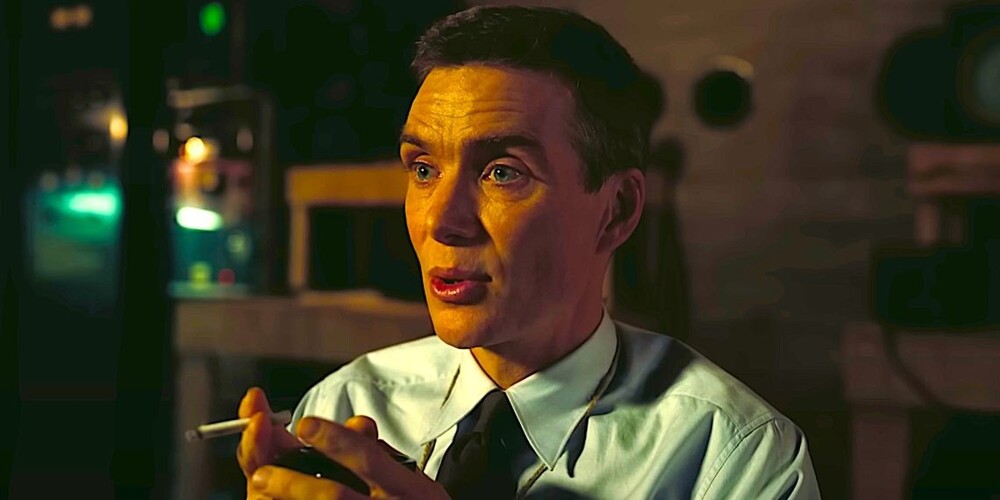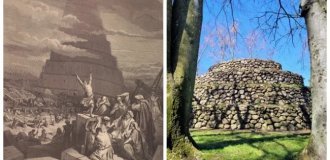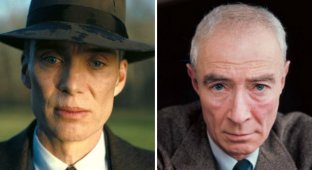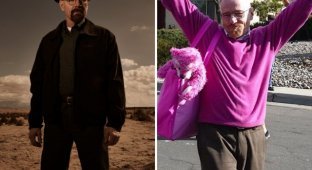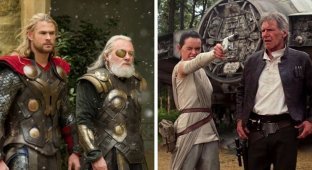Interesting details about Robert Oppenheimer - the "father of the atomic bomb" (11 photos)
On July 21, Christopher's biopic was released worldwide. Nolan on theoretical physicist Julius Robert Oppenheimer. The picture is already managed to break several IMAX records and showed great results. Three-hour drama starring Cillian Murphy tells the story of the "father of the atomic bomb", and many viewers are interested learn how the script relates to the life of a scientist. 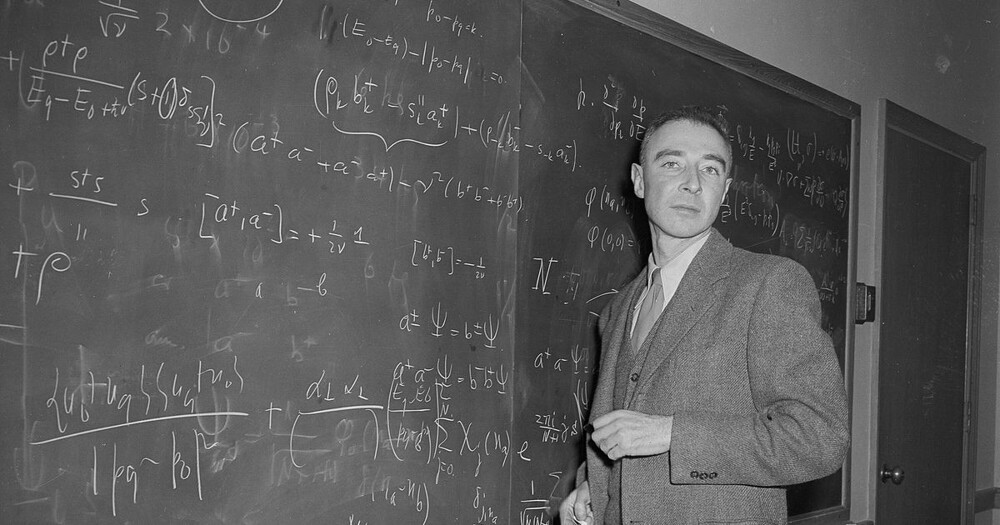
Christopher Nolan's three-hour biopic follows theoretical physicist Robert Oppenheimer 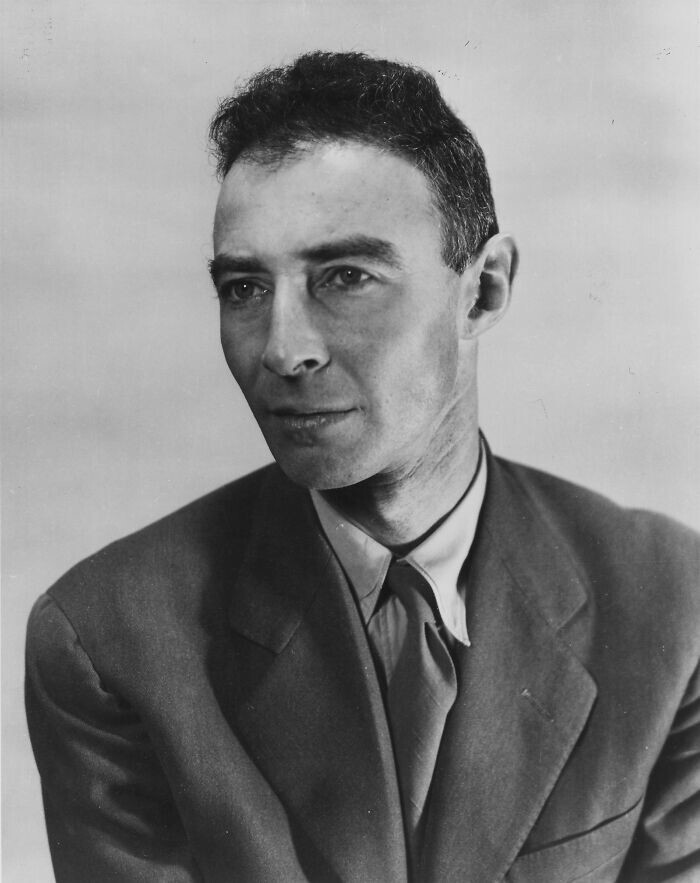
The film was expected to earn $50 million in the US and $100 million dollars worldwide. Oppenheimer grossed $174 million over the weekend. dollars. The director and stellar cast are pleasantly surprised by the success. The film stars Cillian Murphy, Florence Pugh, Robert Downey Jr. Emily Blunt, Rami Malek, Matt Damon, Kenneth Branagh and Casey Affleck.
Wendy Yde of The Guardian, in her review, calls the film "highest achievement" "Not surprising given Nolan's preference shoot on 70mm Imax film, the picture has depth details to drown in," she writes. "More than enough scenes furious drawing on the board - a common cinematic symbol scientific genius. But even more interesting are abstract moments: we seem to we penetrate into the very heart of the atom. No less inventive and how they tremble scenery in moments of tension. Oppenheimer's world is literally shaking from the shock waves of the incipient reaction".
Oppenheimer, portrayed by Cillian Murphy, is best known as the "Father of the Atomic Bomb" 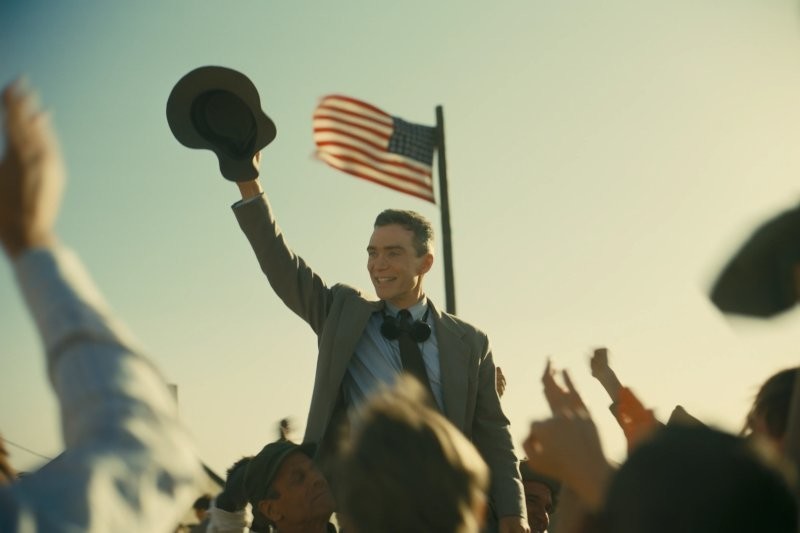
It was important for the director to tell the story truthfully. Oppenheimer in his film exploring the life and legacy of the physicist. "Whether you like it or not, Robert Oppenheimer is the most important person ever lived. He made the world as we know it for the better or worse," Nolan said. 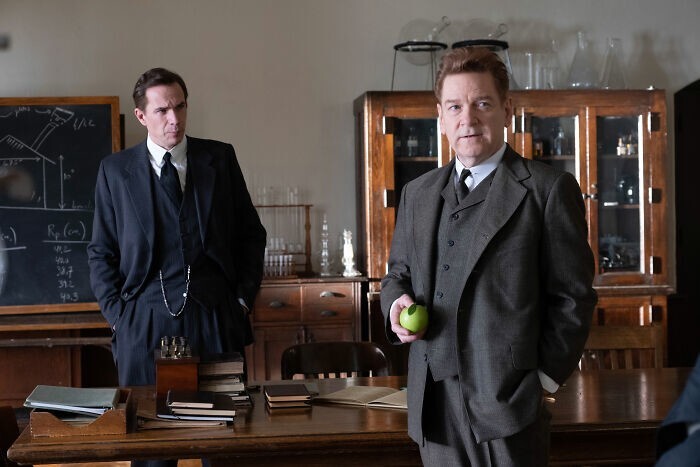
The picture does not affect the childhood of the physicist. Robert was born in 1904 in a wealthy Jewish family in New York. His grandparents both lines emigrated to the USA from Germany, but Oppenheimer did not consider himself neither German nor Jewish. In 1921 he graduated from the Manhattan School ethical culture and entered Harvard.
Anti-Semitism, as well as the arrival of the Nazis in Germany, influenced his relationship to his culture. In 1954, he stated that continuously feels "a smoldering rage at the way Jews are being treated in Germany", and helped relatives move to the United States.
The film also stars Florence Pugh as Jean Tatlock, a Communist Party member and Oppenheimer's lover. 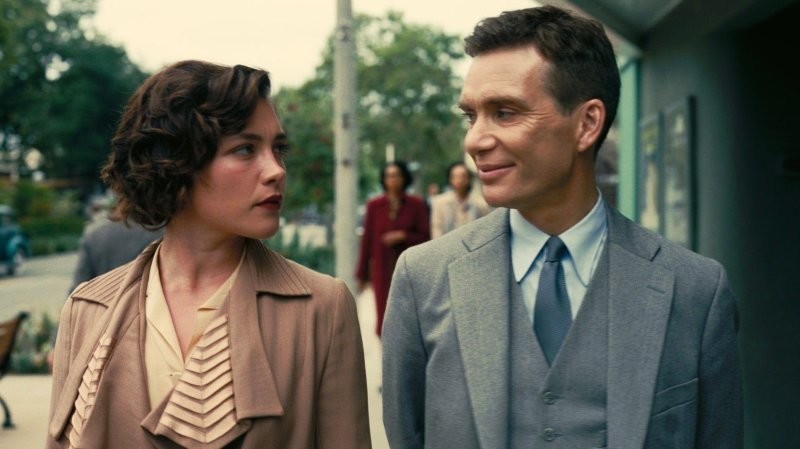
Oppenheimer graduated with honors from Harvard in 1925. university and continued research at the Cavendish Laboratory University of Cambridge under the guidance of a British physicist, laureate Nobel Prize JJ Thomson. However, while studying Oppenheimer began to experience mental health problems and ended up received probation. Robert was forced to go to London for treatment by a psychiatrist.
In the late 1920s, the physicist returned to the United States and began working assistant professor at the University of California at Berkeley. Behind over the next 14 years, he turned the University into one of the best educational institutions with a program in theoretical physics and acquired loyal followers.
After Oppenheimer began a relationship with a student at Stanford University School of Medicine and a communist Jean Tatlock, played by Florence Pugh, became close to the left Political Views. He himself was never officially a member of Communist Party, but many of his close friends and family members, including brother Frank, friend Haakon Chevalier and future wife Katherine "Kitty" Puning, were its members.
Emily Blunt plays Katherine "Kitty" Oppenheimer, the wife of a physicist 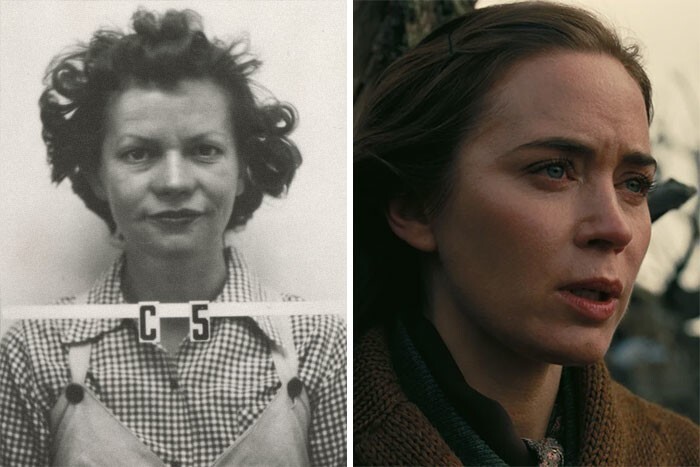
Matt Damon played the role of Lieutenant General Leslie Groves, US Army Corps of Engineers officer in charge of the Manhattan project 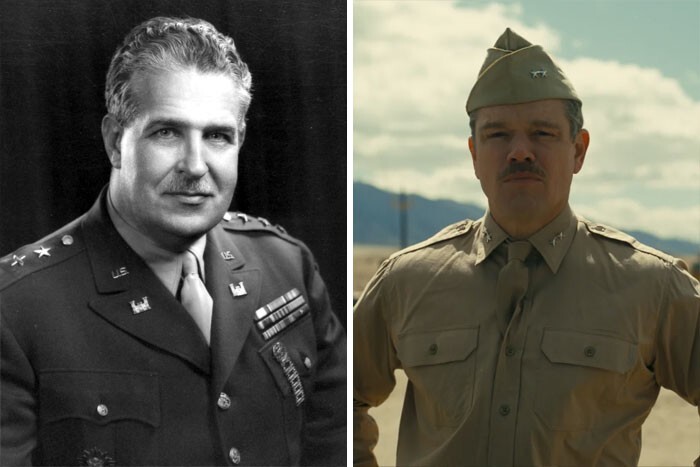
Robert Downey Jr plays Lewis Strauss, Chairman of the US Atomic Energy Commission 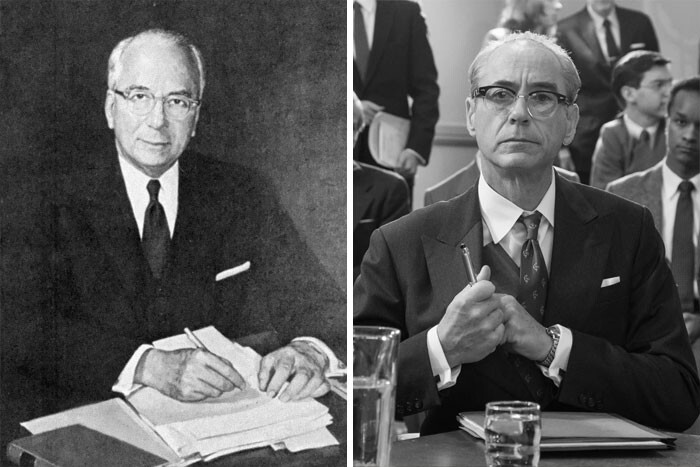
In 1942, Oppenheimer joined the Manhattan project - a secret project of the US government to create a nuclear bombs. General Leslie Groves, played by Matt Damon, appointed Oppenheimer the scientific director of the program, and in 1943 in Los Alamos Laboratory was built in New Mexico.
Robert assembled a group of scientists who lived and worked in Los Alamos until the completion of the bomb. In less than three years they conducted the world's first test of a nuclear weapon - "Trinity". Trial was considered successful because the bomb worked, but the people living in in the vicinity of the landfill, there were serious health problems.
Just 3 weeks after the Trinity test, the US blew up two atomic bombs over Hiroshima and Nagasaki in Japan, causing 110-210 thousand people died. After the end of the war, Oppenheimer visited White House and said to President Harry Truman: "Mr. President, I I feel like there is blood on my hands." 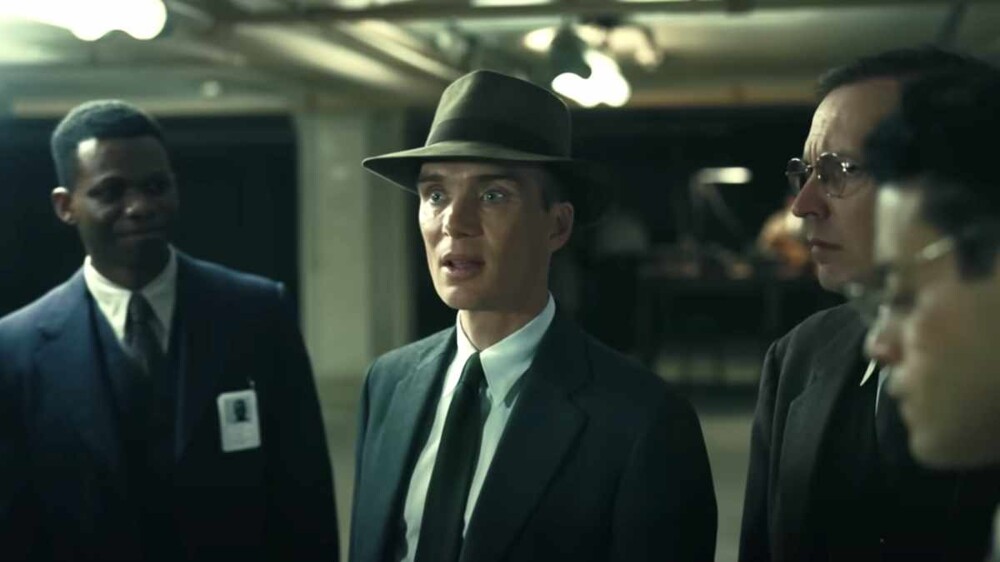
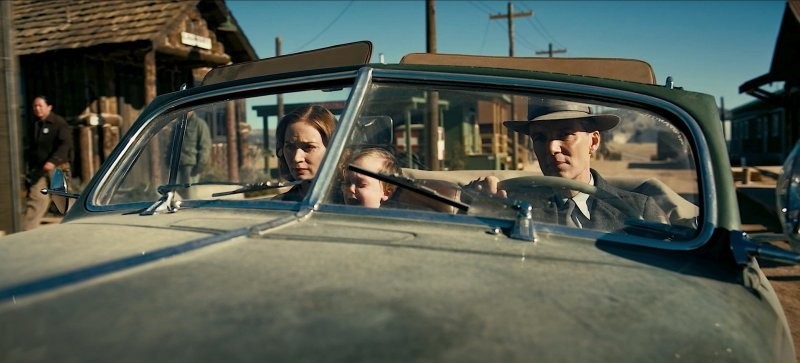
In 1966, the scientist was awarded the Enrico Fermi Prize, established by the US Atomic Energy Commission. In a thank you speech Oppenheimer mentioned that Thomas Jefferson often wrote about brotherly spirit science: "I know we rarely show this fraternal spirit. This is how it happens not because we do not have common or cross scientific interests. This is partly because we are participating in the great cause of our time - the search for ways that would allow humanity to preserve and multiply life, civil liberties, and the pursuit of happiness by without war as the supreme judge of history." 